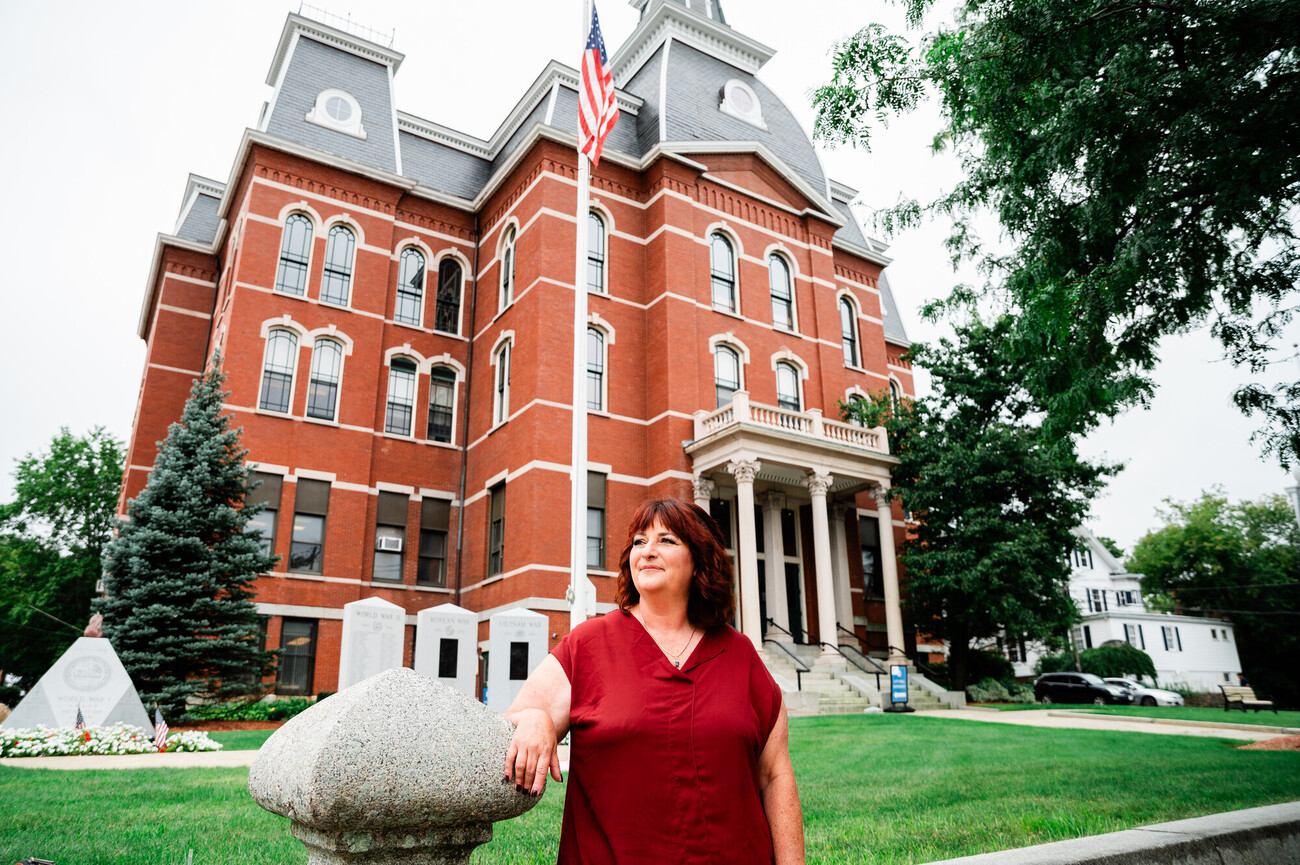Editor’s Note: The Daily Item sat down with each of the three candidates — incumbent Ted Bettencourt, Rochelle Agneta, and Rob Stevens — running for mayor of Peabody to discuss their campaigns and their goals for the city. A preliminary election set for Sept. 12 will trim the field down from three to two candidates.
PEABODY — Rochelle Agneta believes in the city’s future — that’s why the local business owner and lifelong resident hopped into the race for mayor, the first person to take on incumbent Mayor Ted Bettencourt in over a decade.
Agneta owns The Salon CC at Mills 58 on Pualski Street. She has never held elected office, but said her experience running a business has prepared her for the demands of overseeing a city of nearly 54,000 people.
In an interview last week, Agneta said the city needed a plan for its future — something she believes is absent from current leadership. In her view, Peabody has been reactive instead of proactive on major issues, often leaving residents in the dark.
“I get to see the city from two different sides and over the past few years, I just have not been happy with the decisions being made in the city,” she said, citing the city’s recent $7.2 million purchase of open space as a major sticking point. “We’re always running around putting fires out and spending money to put fires out… and it costs us even more money to sit and Band-Aid things than to do it the right way and take the money and put it into place in the right way.”
Agneta expressed frustration with the state of the city’s roads and criticized Bettencourt’s administration for simply patching up streets rather than completely repaving or repairing them — though Bettencourt worked to secure roughly $20 million in state funds to overhaul Central Street, a move Agneta backed. She also lamented a perceived lack of support for businesses in the city, citing the need for a dedicated business liaison, a position Bettencourt handed to his chief of staff, Chris Ryder.
Bettencourt has said giving the position to Ryder has saved the city money, with Ryder getting a raise and the city not being responsible for paying the salary of a full-time liaison.
But for Agneta, businesses don’t have enough help.
“I walk Main Street and I’ve talked to all these businesses and I get the exact same thing, they reach out and they get no help,” she said. “Our Main Street is disgusting, it’s dirty.”
A central point of Agneta’s campaign has been a proposal to bring a commuter-rail station to the city on the site where the Rousselot plant currently sits. Rousselot has said it plans to shut down its Peabody operation at the end of this year, leaving the future of the hundreds of acres of land owned by the company in flux.
Though there is no guarantee the MBTA would even be interested in a station in Peabody, Agneta said her conversations with state officials have led her to believe the city could host its own train station, especially given that train tracks already run to the Rousselot property.
A commuter-rail station would dramatically expand the opportunities available to the city and could attract a new generation of residents, she said.
“You can’t get young business couples into Peabody who work in the city. They’re not going to buy in here,” she said. “There’s no way to get into the city.”
Despite never holding public office (Bettencourt was on the City Council before being elected mayor), Agneta said her leadership experience running a business would translate to running a city.
“The mayor’s job… is to lead his team and make them do what needs to be done,” she said. “That’s what I am. I’m a leader and I’m very confident of that.”
Agneta spoke at length about Bettencourt’s handling of the open-space purchase, a move the mayor has said was done to block a proposed development in the area. But, Agneta said she viewed the land — two parcels on Sherwood Avenue and Spring Pond Road that comprise roughly 80 acres —as “unbuildable.” She said she would’ve liked the mayor to redirect his attention to blocking other developments in the city, though many of the apartment complexes set to be built in the city came through under the state’s Chapter 40B housing laws, which gives developers added flexibility in communities where less than 10 percent of the housing stock is deemed affordable.
“If you’re going to purchase that land to stop development then why not purchase King Street? Why not purchase Winona Street? Why not purchase Endicott Street? Why only that to stop development? Why?” she said. “If you’re gonna go out, and you’re gonna buy land to block developing, why are you buying that and not everything else? It doesn’t make any sense.”
“This was all done behind closed doors,” she added.
Agneta said she would have preferred Bettencourt allocate those funds to purchase the land Rousselot sits on, though that property is roughly four times the size of the one the city purchased earlier this year.
As mayor, Agneta would also serve as chair of the School Committee. On the issue of the city’s schools, Agneta lobbied for greater investments into maintenance to ensure that buildings don’t require complete reconstructions.
“You strategize… what is needed the absolute most? What do we have the money for? What can we put the money towards, and where do we get the money from?” she said. “That’s the game, for everything in the city is prioritizing what needs to be done. And I think somewhere along the line, those priorities have gotten messed up.”

